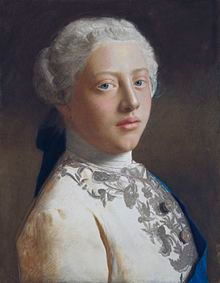The United States of America: A Unique Political Life
- Caroline Baki
- May 26, 2022
- 4 min read
Updated: Aug 29, 2022
Hey guys! Here is an introduction to a series of synthesis that tackle the uniqueness of the American political system in depth. Through this series you'll understand the challenges the United States faces and its history. At the end you'll get to engage in complicated conversations and debates concerning politics in the US like pros.
Grab a pen and a note book. Don't forget to take a glass of water to keep you hydrated and let's get started!

The Birth of the United States

America, America! Known as one of the most powerful countries in the world, the United States never cease to surprise us with its unabating freshness. What do you think of when you hear "USA"?
Probably, Hollywood, a huge mansion, fast food, fast cars, celebrities, business, Disney Channel, Democracy... yup, you name it. And yet, before being the United States of America we currently know, the United States weren't always prosperous.
A Revolutionary country
What is a common theme in the growth of France and the USA? Well, they were both born on a revolutionary ground that brought them to Democracy. In deed, the United States was a colonial venture headed by King George I. The first settlers to occupy a region of the American continent, were convicts and Puritan pilgrims (Protestants who left Great Britain in order to flee from the the Catholic influence in the Anglican Church).
In 17th Century, the British had accumulated during their venture a total of 13 colonies. These 13 colonies were divided in 3 categories and had their own responsibilities:
The New England Colonies ( New Hampshire, Massachussets, Rhode Island and Connecticut) who had a theocratic system and were linked to England through mostly administrative activity.
The Middle Colonies (Pennsylvania, New Jersey, Delaware and Maryland, New York) known for their agricultural economy thanks to the fertile soil.
The Southern Colonies (Virginia, North Carolina, South Carolina and Georgia) who also prospered by dint of... um slavery.
The colonies were so self sufficient that King George I, didn't even have to directly supervise them. And that's called the salutary neglect. For as long as the 13 colonies were loyal to the King he wouldn't meddle in their business.
*Keep in mind that the settlers were seeking for freedom and a way to reinvent themselves while gincreasing their money. So being a landowner was very important at that time. No wonder why real estate is so important! :)
The Beginning of a Great Union
Though they had all pledged allegiance to the crown three incentives lead brought the colonies together. From 1756 to 1763 (7 Year War), the settlers still lead by king George I fought against the French over more land in the American continent. Yes, you guessed it! The Brits won! This victory was a proof of loyalty to the crown and also King George I's trust was put in view.
Obviously that's not the end of the story.
King George:

- Prevented the settlers from going into the the new acquired land by establishing a boundary called the Line of Proclamation in 1763
-Protected the Line of proclamation by commanding British soldiers aka Red Coats to stay and thus ended the Salutary Neglect. Moreover the Red Coats had the possibility to stay for free.
-Demanded the reimbursement of the 7 Year War with more taxes supervised by the Red Coats!!
These 3 catalysts were reasons enough to grow contempt and reconsider a withdrawal from the British government. After multiple years of invasion and stifling oppression and as war was a last resort the colonists decided to not settle for dictatorship. So they stood for their rights.
In 1775 the War of Independence began. This time it opposed the settlers to the Crown itself. Approximately 6,800 colonists were killed during this war. Their passings weren't in vain as in 1776 the settlers won. They proudly and powerfully declared their independence in July 4th 1776.
What did the infamous Declaration of Independence say?

Well, first of all the Declaration of Independence is an introduction to democracy.
Its preamble proclaims the equality of rights for all.
"...nalienable Rights, that among these are- Life Liberty and Pursuit of Happiness"
And then they condemned the king and his ill-mannered behaviour towards the 13 colonies in 17 grievances which included the 3 catalysts mentioned earlier that caused their rebellion.
The Declaration of Independence was applicable to all human being. Except most of the signatories of this sacred document, were slave holders. In this particular context, black people weren't viewed as any more than possessions, thus the inalienable rights not applying to them. As the War of Independence took place in between 1775-1783
A respected general of the time named George Washington mobilised all three parts of the now ex-colony and lead them all to complete independence. But as much as he was revered he wasn't always honorable. In deed, all men who refused to fight were given the punishment of death. These people regardless of the reasons they had to refuse war were labelled loyalists and among them were people Loyal to the crown, people of who's religious beliefs prevented them from taking people's possessions let alone their lives and (yes you guessed it!), slaves who were promised freedom and a new life by the King.
Once the treaty of Paris was signed in 1783 and affective in 1784 it was time for the colonists to celebrate their independence and introduction to democracy. So they created a confederation of 13 United States. That's where the USA begun.
I hope you enjoyed this article (hehe) stay tuned for the next one!




Comments